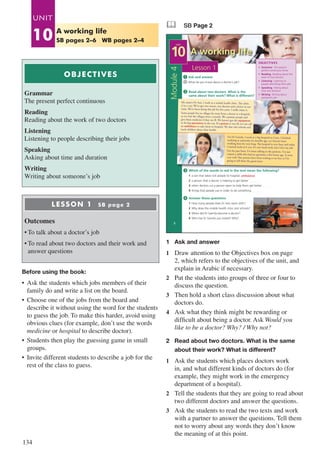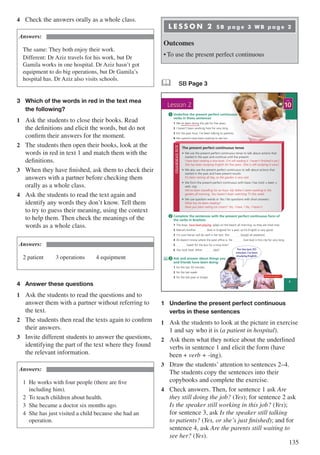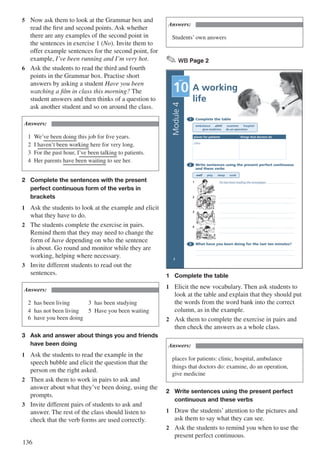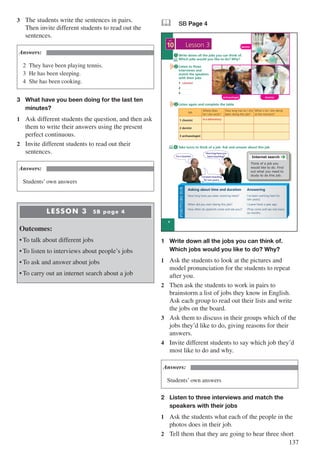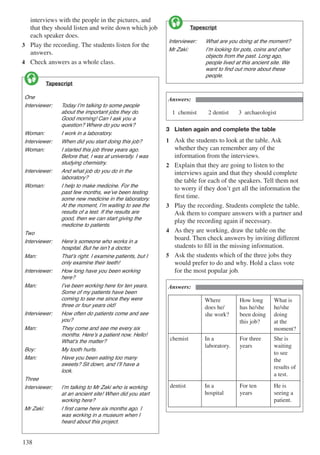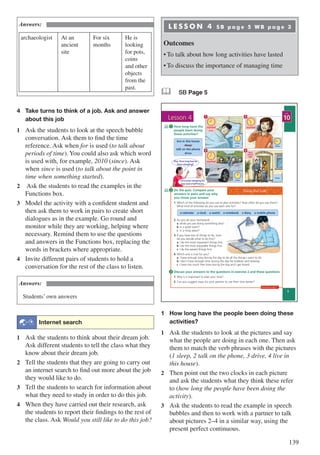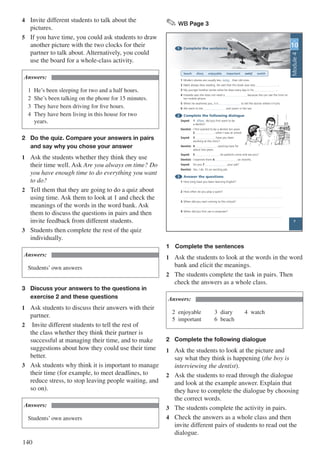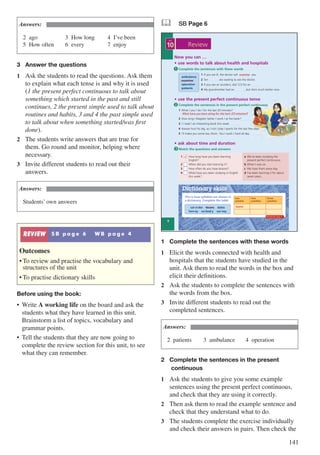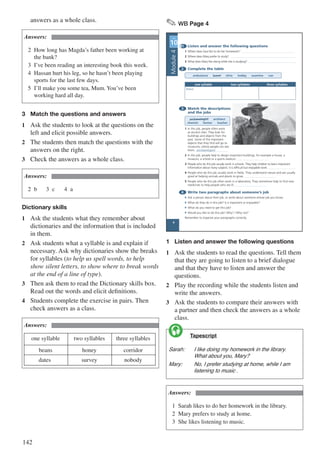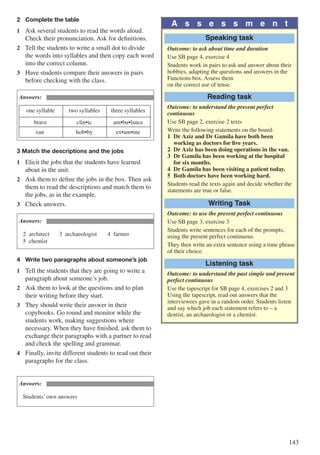This document provides the objectives and lesson plan for a lesson about doctors' jobs. The lesson objectives are to use the present perfect continuous tense, read about two doctors, listen to job descriptions, ask about time and duration, and write about a job. The lesson plan instructs teachers to have students brainstorm jobs, read about two doctors, listen to job interviews and match speakers to jobs, ask questions using the present perfect continuous, and research a dream job online. It provides exercises and answers to check comprehension.
